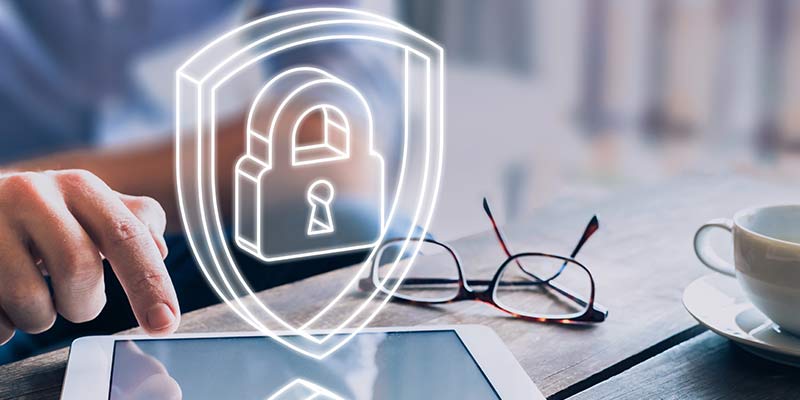By Unigo
As a college student, you likely have personal information in your computer, cell phone, academic file, wallet, and in your dorm room. It’s essential to protect this information because thieves who steal your devices and personal information can then steal your identity and commit crimes in your name that is why it’s important to be aware of the different types of cyber security threats. Identity theft can also affect your credit score and your ability to get a job after graduation.
This article covers common types of cyber security threats on college campuses and what you can do to help protect yourself.
Campus or public Wi-Fi
First type of cyber security threat to college students is using campus or public Wi-Fi. Campus-wide Wi-Fi is essential for colleges today. Students use it to stay connected to professors, friends, and family and for research and other educational resources. However, campus Wi-Fi really isn’t much more secure than any public Wi-Fi, leaving your vulnerable to malware attacks, identify theft, and more.
In order to protect your online data and personal information, be sure to take the right precautions, including the following:
- Use a VPN, which will encrypt the connection between your device and the sites you visit.
- Confirm the network name to be sure you are connecting to a legitimate campus network rather than a fake one.
- Disable the automatic connect function on your device, so that you can verify the network is authentic before you connect.
- Use complex passwords, which are more difficult to crack.
- Make sure your firewall is turned on.
- Keep your anti-virus protection up to date.
Theft
Second type of cyber security threat is identity theft. Theft is one of the most common forms of crime on college campuses. Whether you’re working on a research paper in the library and get up to use the bathroom, or you leave your dorm unlocked while you’re visiting with friends down the hall, it only takes a split second for a thief to swipe your valuables. Losing your driver’s license, credit cards, and other valuable personal information can open you up to all kinds of problems, including identity theft.
Be vigilant about keeping track of your belongs and use some common-sense strategies, such as the following:
- Lock your dorm room.
- Don’t leave valuables, especially your backpack or laptop, in your car.
- Take everything with you when you get up to use the bathroom or get a coffee refill. (Yes, it’s a pain. Do it anyway.)
- Install laptop tracking software.
- Don’t store personal information such as passwords and your SSN in files on your phone or computer.
- Back up your files on a remote hard drive and/or a trusted cloud provider. That way, you have the option to erase your laptop remotely if it is stolen.
- Lock your phone screen with at least a 6-digit pin.
- Lock up or shred FAFSA forms, bank documents, tax documents, credit card applications, and anything with your financial or personal info.
Computer labs/communal workstations
Computer labs and communal workstations are risky. Third types of cyber security threat to college students is Keylogging. Keylogging (using a shadowing device that records keystrokes) allows cyber thieves to steal passwords and access software and personal information. Working at a communal workstation on campus may also expose you to infected software or files. And you also leave behind your browsing history and other bits of your digital info in the system.
If you absolutely must use a communal workstation, avoid inputting sensitive information (e.g. passwords) or visiting any sites that seem suspicious.
Cyber bullying or revenge porn
Another type of cyber security threat to college students are Cyber bullying and harassment. This can be terrifying and negatively affect your overall health and well-being. If you have an online presence, chances are good that you will experience some form of cyber bullying or harassment at some point.
Protect yourself as much as possible with the following precautions:
- Never post personal info (mobile number, home address, age, location, name of your school, etc.) on a social media site.
- Don’t accept random friends and students on social media.
- Check the security settings in your social media account.
- Don’t take or store embarrassing pictures on your phone or cloud accounts.
- Avoid sexting, even with a trusted and loving partner, because hackers have the ability to get hold of these photos.
What to do if you find yourself a victim:
- Be clear with your attacker that you want to be left alone.
- Use filters and security software to cut yourself off from your harasser.
- Take screenshots and save emails, texts, and voice messages to document the harassment.
- Report the problem to campus police/security and your social media provider.
- Seek counseling as needed.
ATM skimmers
Last on the list of types of cyber security threats are ATM skimmers. ATMs on campus are vulnerable to hackers who install skimmers inside the machine and cameras to record you entering your PIN. (A skimmer is a card reader that saves your card number and PIN code.).
To keep your ATM or debit card secure:
- Inspect the ATM to see if anything looks broken or unusual or to see whether there’s a plastic overlay on the keypad, which may be used to record your PIN.
- If your card is hard to put in the slot, this may be the sign of an internal skimmer. Do not use the machine.
- Always cover the keypad with your hand when entering your PIN.
- If anyone is standing too closely behind you, walk away. They may be attempting to record you or your PIN.
- Keep your bank’s helpline handy so that you can freeze your account if you lose your card or think it’s been compromised.
